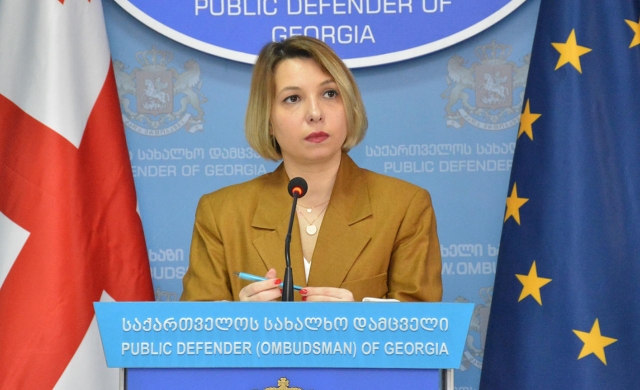Public Defender on ‘Informal Governance’ in Prisons
‘Informal governance’ is ongoing in Georgian penitentiary facilities; informal supervisors move freely around prisons and claim power to resolve in-cell problems - reads the statement by Public Defender Nino Lomjaria. Lomjaria will soon present an official report to the Human Rights Committee, reiterating the findings based on extensive monitoring in Georgia's penitentiary establishments.
One of the main focuses of the monitoring was to examine the extent and forms of informal governance in the institutions, as it poses a serious threat to prisoners’ ill-treatment, which leads to violence and oppression. Lomjaria holds that there is sufficient evidence to claim that inmates are informally divided into privileged and non-privileged persons through “the influence of criminal subculture,” allowing privileged prisoners to impose control over other inmates.
Lomjaria claims the problem cannot be denied by the Ministry of Justice due to pervasive evidence confirming the above. Lomjaria expects that today the Ministry of Justice will discuss ways to resolve the dilemma.
"The European Committee for the Prevention of Torture (CPT) carried out a periodic visit to Georgia last year and very clearly confirmed the pernicious influence of the existing informal prisoner hierarchy at Prison No. 15. Our monitoring group carried out thorough research at four of the largest semi-open and closed institutions in Georgia and found evidence of ‘informal supervision’ in both. So-called ‘watchers’ move around freely, enter cells, and in general, claim power to resolve in-cell problems. They force prisoners not to file complaints. Prisoners are continually subject to coercion and harassment. We remember three cases when prisoners died in such conflicts in 2013, 2014 and 2015,” Lomjaria said.
Last year, the official report released by the CPT stressed that the ‘watcher’ phenomenon was totally unacceptable; its (re)emergence at Prison No. 15 was a troubling sign and major efforts were required to ensure that it did not spread throughout the prison system. “The lack of any tangible, real progress regarding the development of modern prison regimes and programmes of activities for inmates is one of the CPT’s main preoccupations in Georgia, as far as prisons are concerned”, reads the CPT report.
By Elene Dzebisashvili












